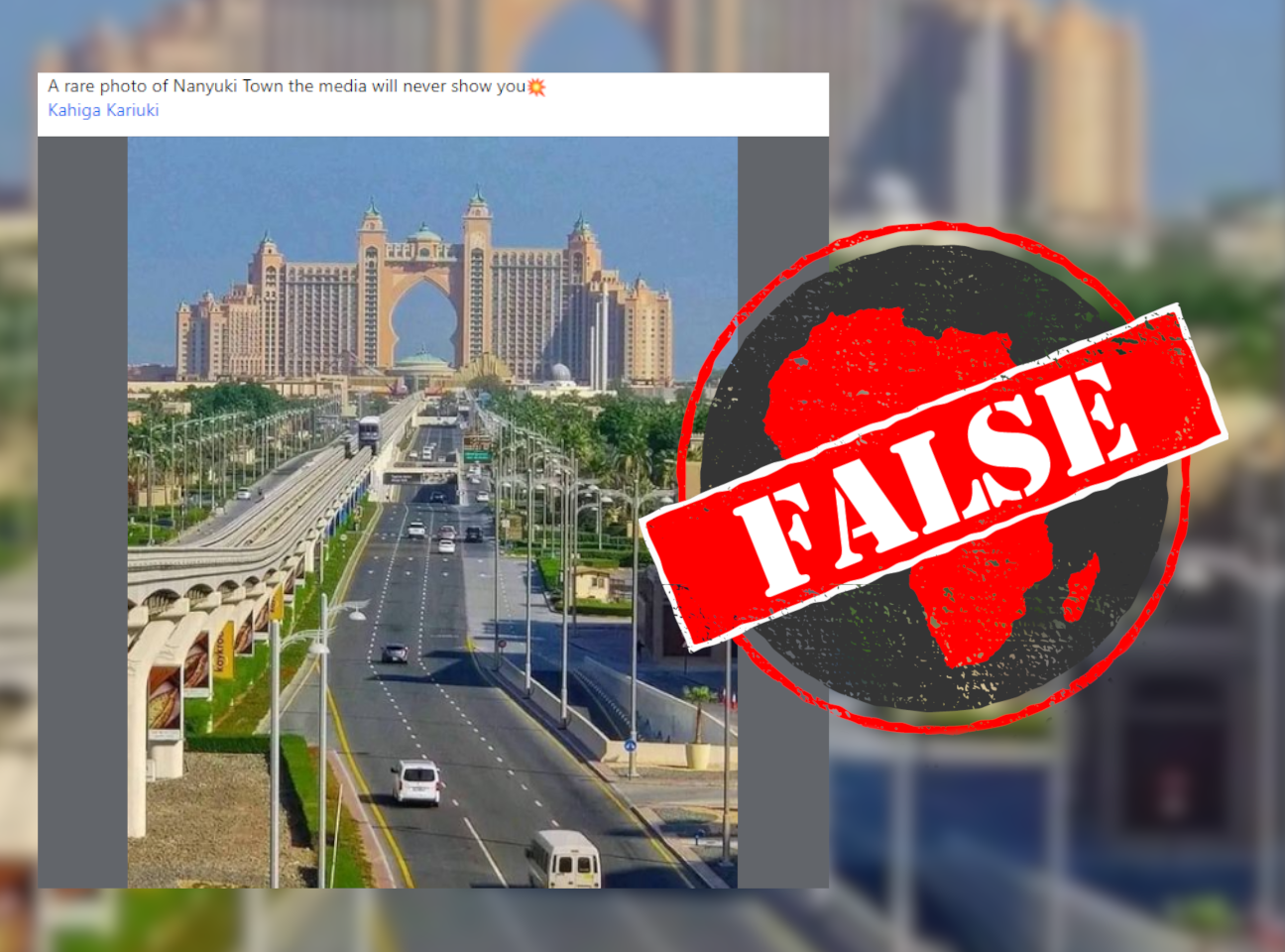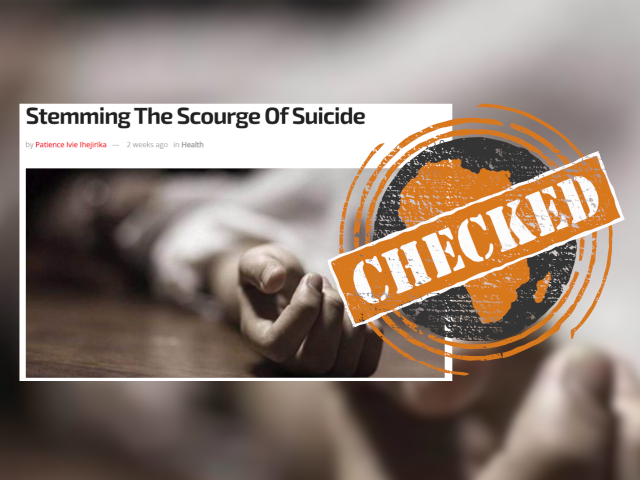IN SHORT: A photo of impressive transport infrastructure and imposing buildings is not from Nanyuki in Kenya – or any other town in the African country. It shows Dubai, in the United Arab Emirates.
A photo doing the rounds on Facebook in Kenya shows a three-lane highway running parallel to an elevated rapid transit system and a huge building in the background.
The photo has been posted with a claim that it shows part of Nanyuki, a town in Laikipia county in central Kenya.
“A rare photo of Nanyuki Town the media will never show you,” one Facebook user captioned the photo.
But does it show a view of Nanyuki or any other town in Kenya? We checked.

Photo from Dubai
A reverse image search of the photo led to a number of similar photos, all described as showing part of the transport infrastructure in Dubai, a city and emirate in the United Arab Emirates.
The building in the background appears to be Atlantis, The Palm hotel, on the Palm Jumeirah island.
The photo does not show any town in Kenya.
Republish our content for free
For publishers: what to do if your post is rated false
A fact-checker has rated your Facebook or Instagram post as “false”, “altered”, “partly false” or “missing context”. This could have serious consequences. What do you do?
Click on our guide for the steps you should follow.
Publishers guideAfrica Check teams up with Facebook
Africa Check is a partner in Meta's third-party fact-checking programme to help stop the spread of false information on social media.
The content we rate as “false” will be downgraded on Facebook and Instagram. This means fewer people will see it.
You can also help identify false information on Facebook. This guide explains how.



Add new comment